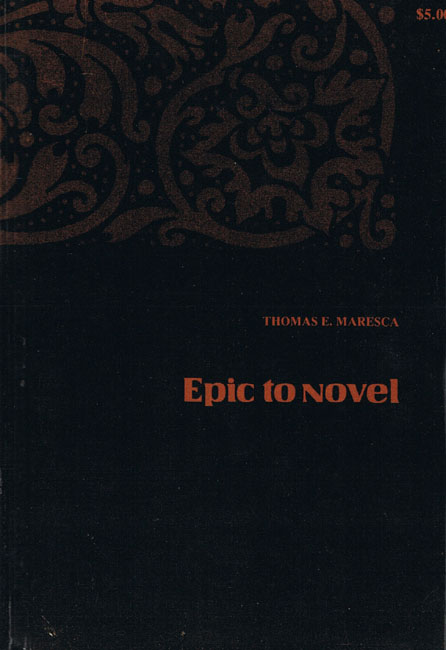Epic to NovelThomas E. Maresca |
 1974 Literary Criticism / European / English, Irish, Scottish, Welsh 238 pp. 6x9 |
|||
|
read the full text of the book •
|
According to Thomas Maresca, in Absalom and Achitophel John Dryden created in the tradition of Spencer and Milton what was to be the last verse epic of merit in the English language. Following its publication in 1681, what had been regarded as the major literary form in English entered a sharp decline that persisted until epic, by parody of itself, evolved eventually, with many of its strains intact, into what has been the dominant genre ever since—the novel—what Henry Fielding called the comic epic in prose. The process by which this came about, Mr. Maresca persuasively demonstrates to be an organic development obedient to its own inner laws. The theoretical understanding of the epic derived from medieval and Renaissance commentaries on Virgil carried within itself the seeds not only of its own demise, but also of its rebirth, and offered the Augustans opportunities to explore alternative directions already potential within the form. The present book is divided into four chapters dealing respectively with Dryden, Alexander Pope, Jonathan Swift, and Fielding, and attempts through close analysis of works having both parodic and serious relations to epic—such as MacFlecknoe, The Rape of the Lock, The Dunciad, A Tale of a Tub, Gulliver’s Travels, Joseph Andrews, Tom Jones, and Amelia—to establish bases for discussions of what precisely constituted epic form and epic subject matter for the writers of the period. Its distinctive achievement lies in the light that it sheds not only on these works as individual masterpieces, but also on their significance as components of, and episodes in, a literary movement of enduring importance. In approaching these four writers and their principal works in a way not attempted before, Professor Maresca reaches conclusions that challenge some important assumptions of contemporary scholarship and seem likely to produce a realignment in contemporary critical positions. Thomas E. Maresca, the author of Pope’s Horatian Poems, published in 1966, is associate professor of English and director of graduate studies in English at the State University of New York at Stony Book. | |||

